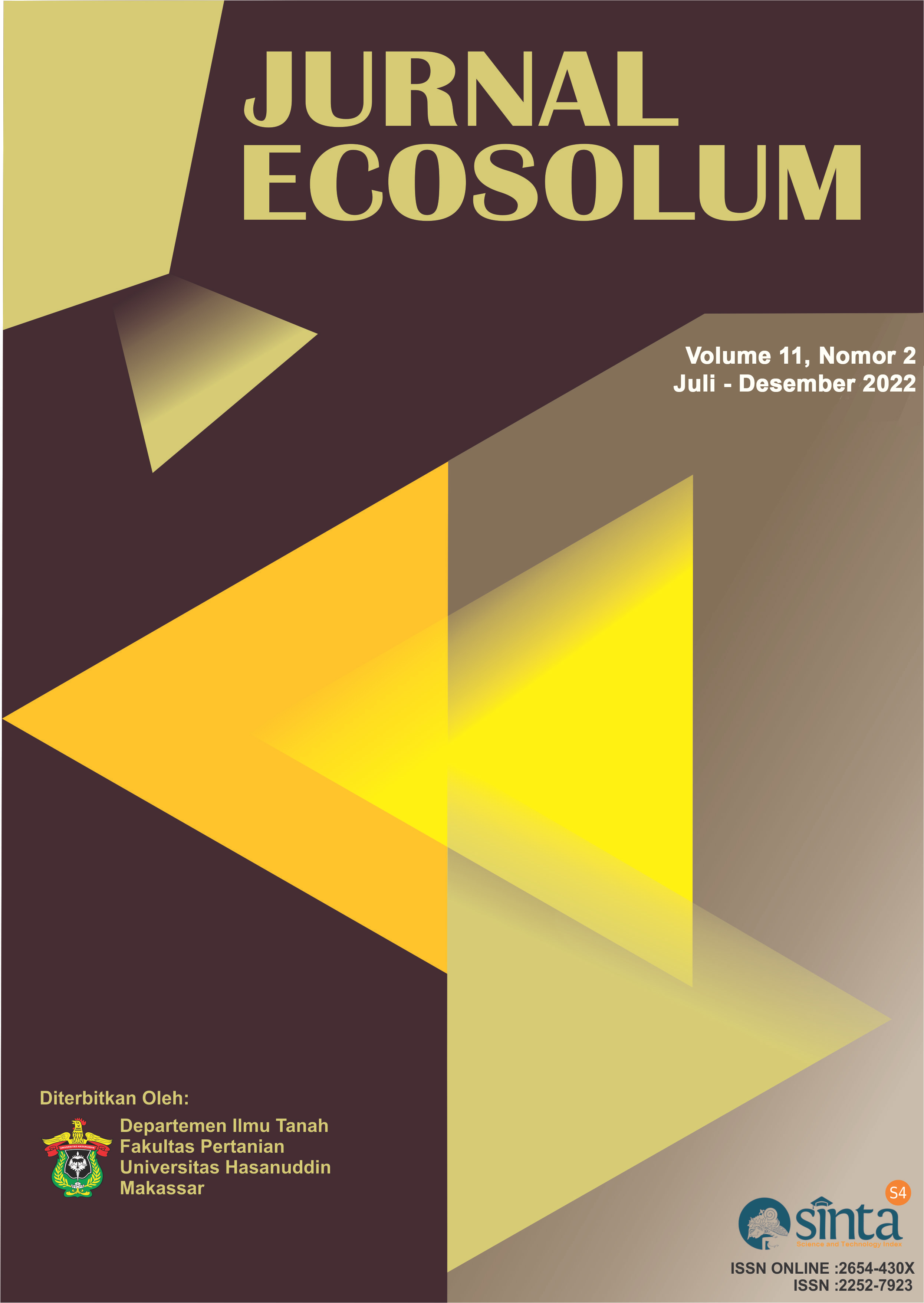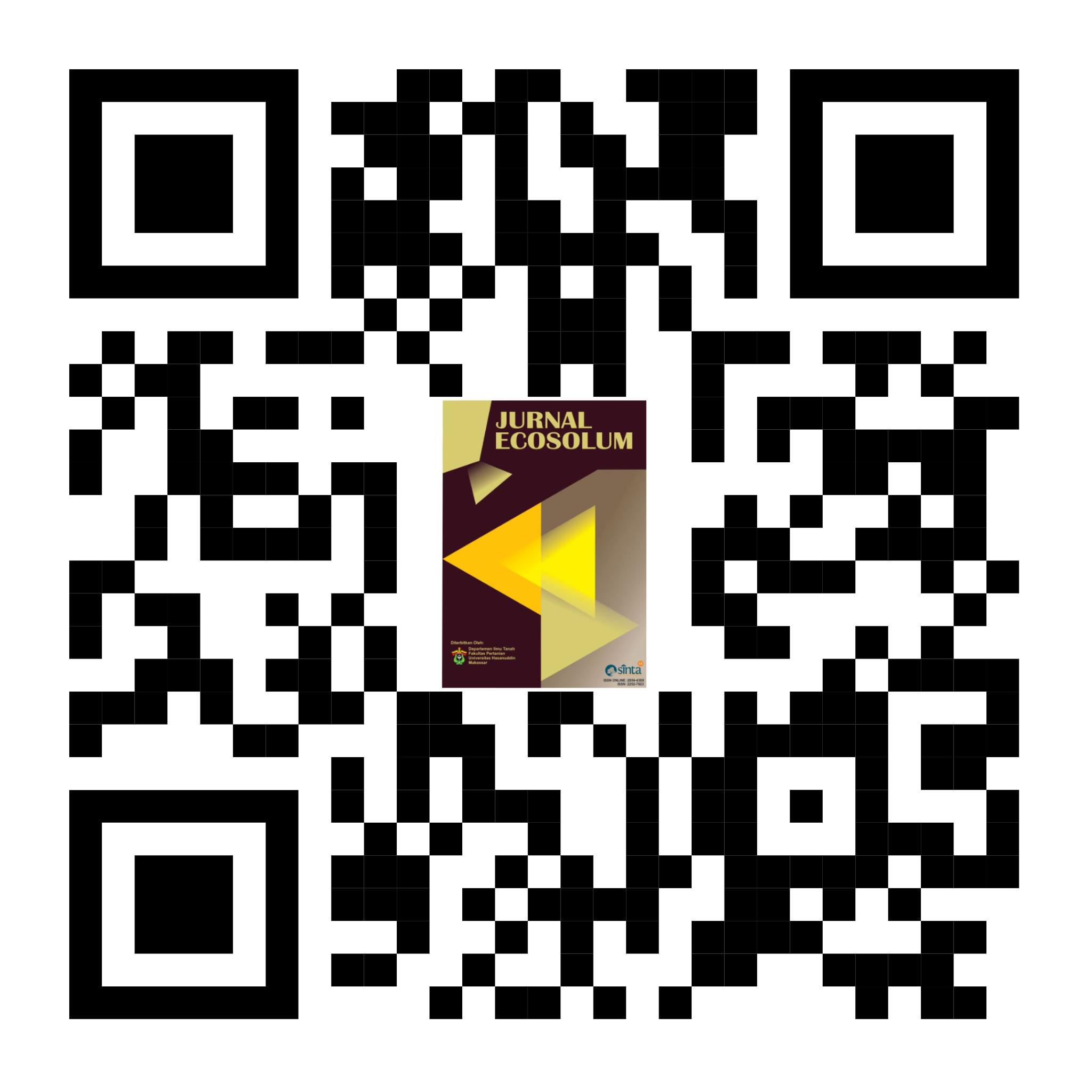Status Kimia Tanah pada Sistem Budidaya Ubi Alabio (Dioscorea alata) di Lahan Rawa Lebak Dangkal dan Tengahan
Soil Chemical Status in Alabio Sweet Cultivation Systems (Dioscorea alata) in Shallow and Middle Lebak Swamp Land
DOI:
https://doi.org/10.20956/ecosolum.v11i2.23190Keywords:
Alabio, Cultivations, Nutrient, LebakAbstract
The Lebak swamp land based on the hydrotopography of the lebak swamp is divided into three typologies, namely shallow/superficial lebak, middle lebak, and deep lebak. The management of lebak swamp land has been carried out by local farmers, including improving soil properties through cultivation techniques. Alabio yams cultivation system is carried out from generation to generation by the swamp farmers in Hulu Sungai Utara. Local wisdom that is usually done by farmers on the alabio yams commodity is the sustainable use of green manure from water weeds. Research study the chemical status of the soil in the cultivation of alabio yams in the shallow and middle of Lebak. The method used is descriptive exploration. The research location is in Teluk Sinar Village, Sungai Pandan District, Hulu Sungai Utara Regency. This study used a descriptive method by comparing two types of topography, namely shallow and middle lebak in alabio yams cultivation. Samples were taken at a depth of ± 20 cm. In terms of soil chemical status, shallow swamps are better than middle swamps. However, the lebak swamps, both shallow and middle lebak, in Sungai Pandan District, Hulu Sungai Utara, South Kalimantan, have met the chemical soil fertility criteria to be able to support the growth and development of Alabio cassava optimally. Essential macro nutrients such as N, P and K tend to be more available in shallow basins than in the middle basin. Cultivating alabio yams by using water weeds to become mulch and green manure is considered capable of supporting the growth of alabio yams in a sustainable manner
Downloads
Published
How to Cite
Issue
Section
License

This work is licensed under a Creative Commons Attribution-NonCommercial 4.0 International License.












